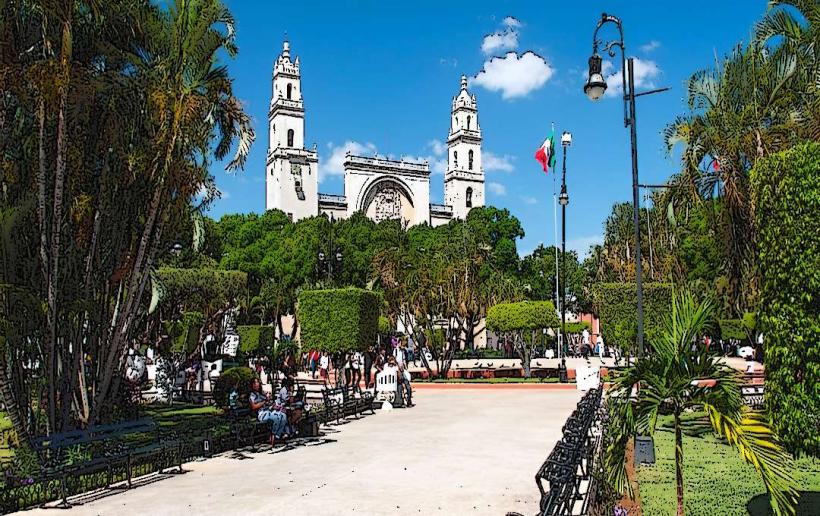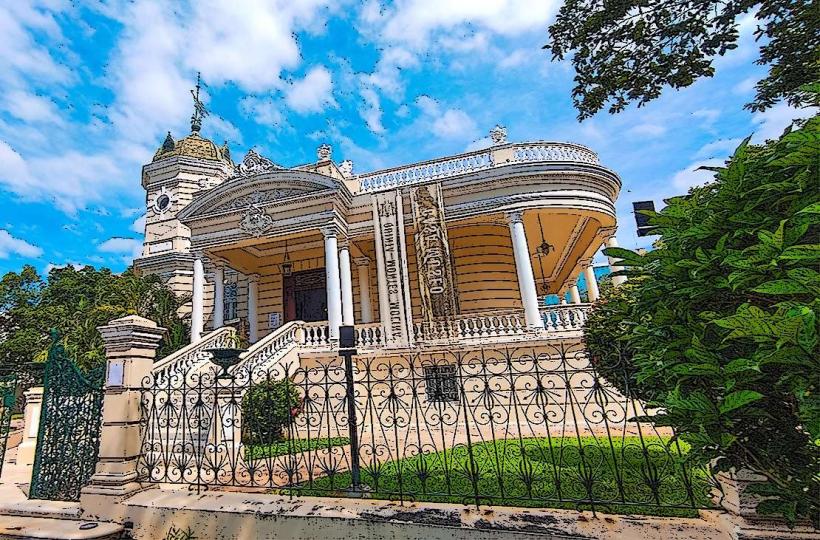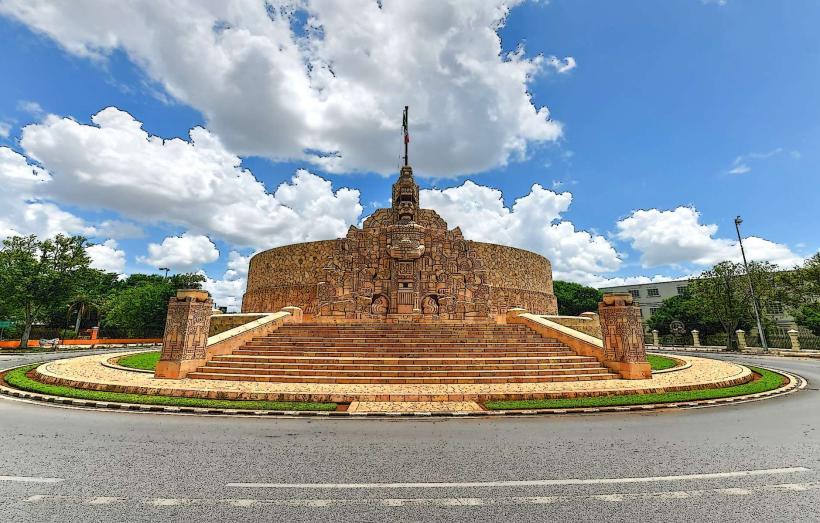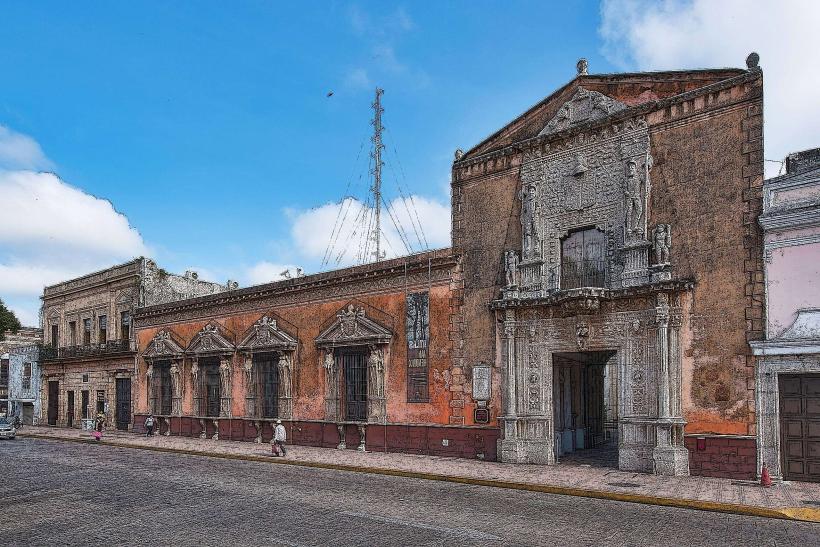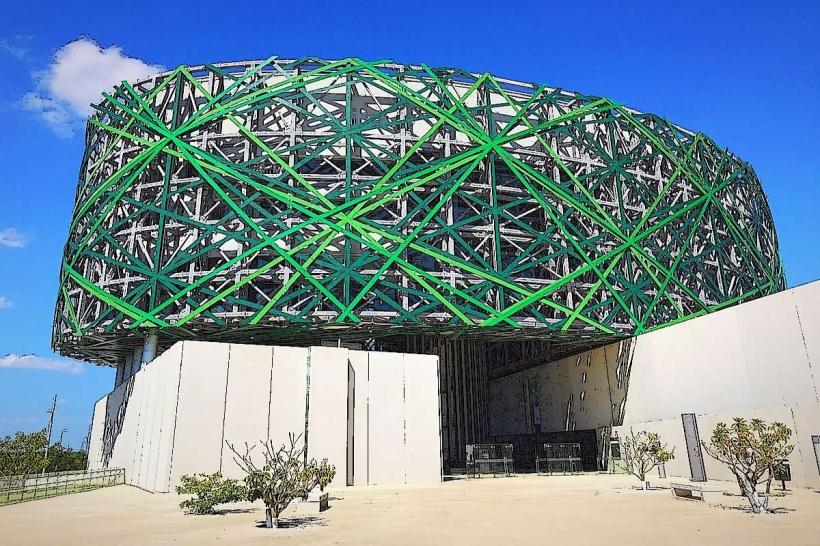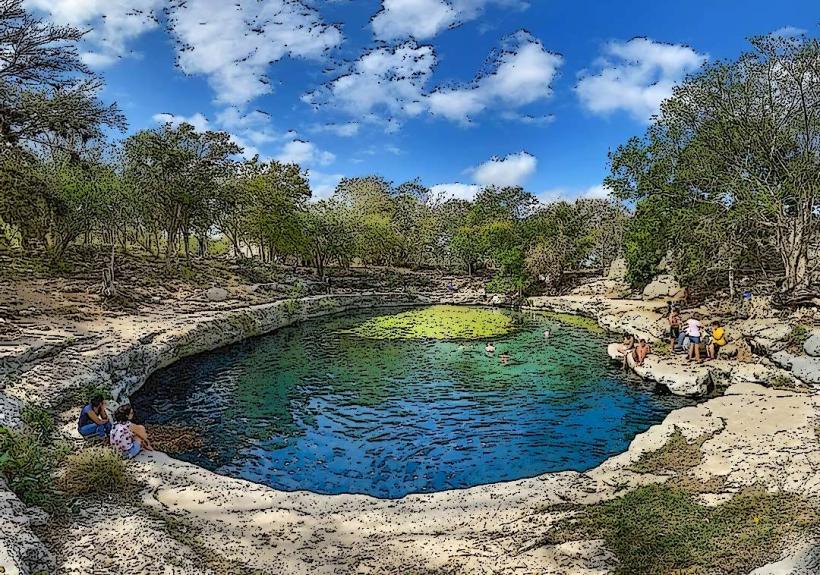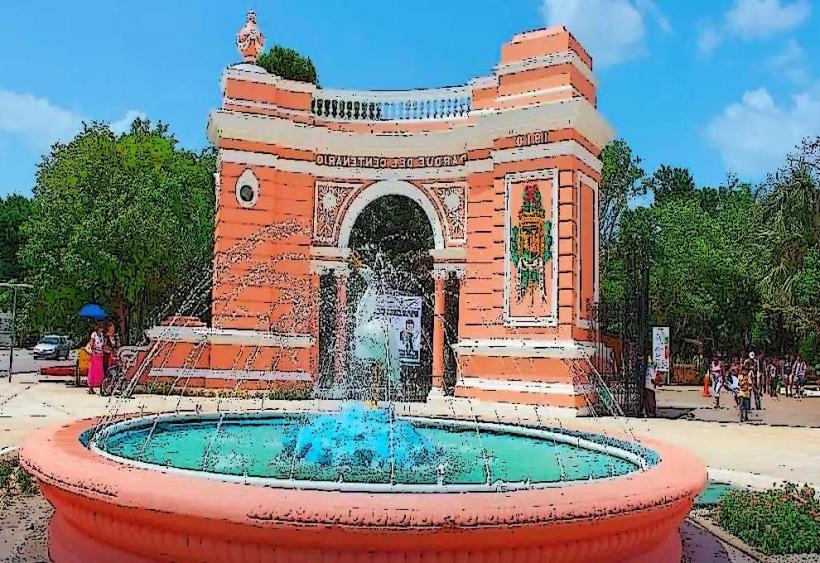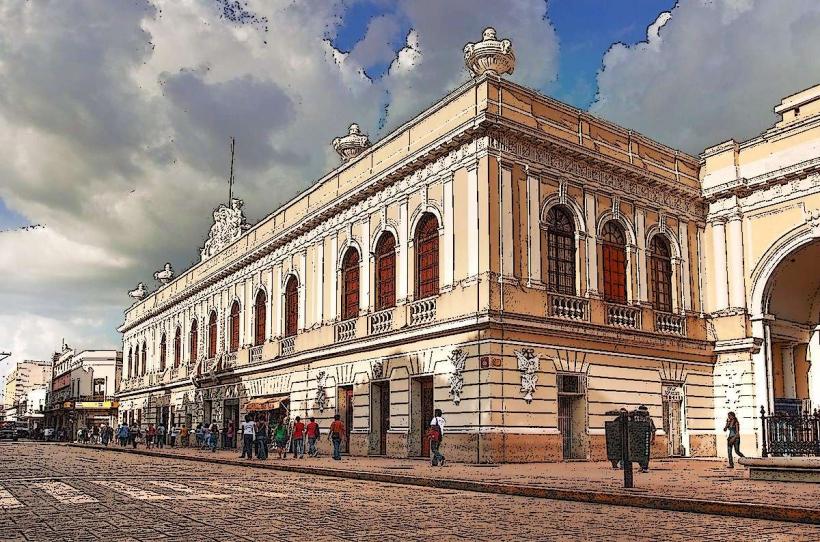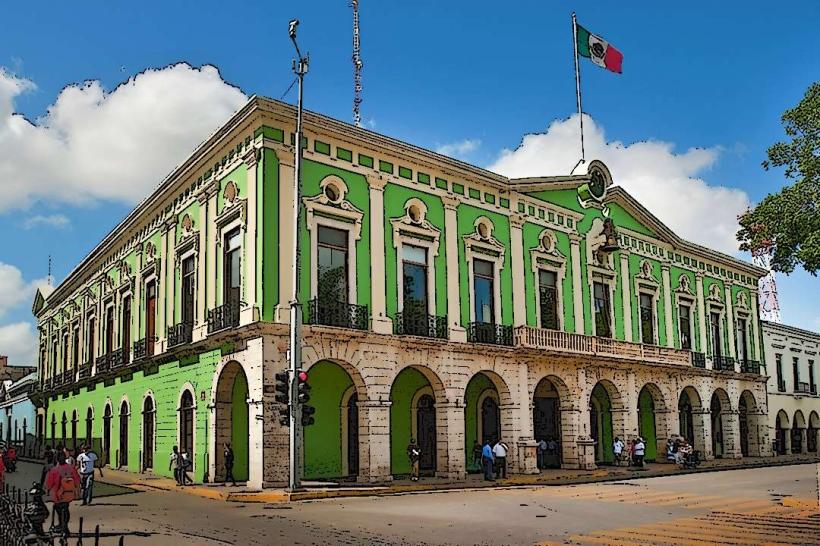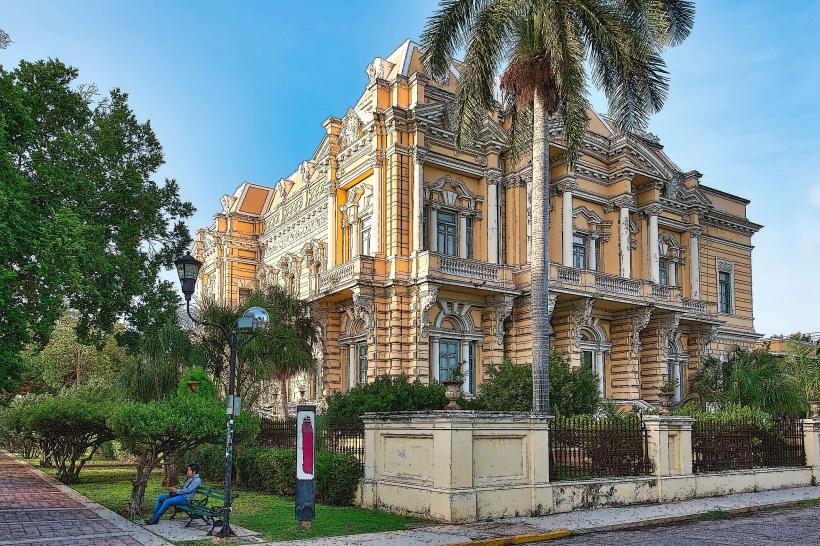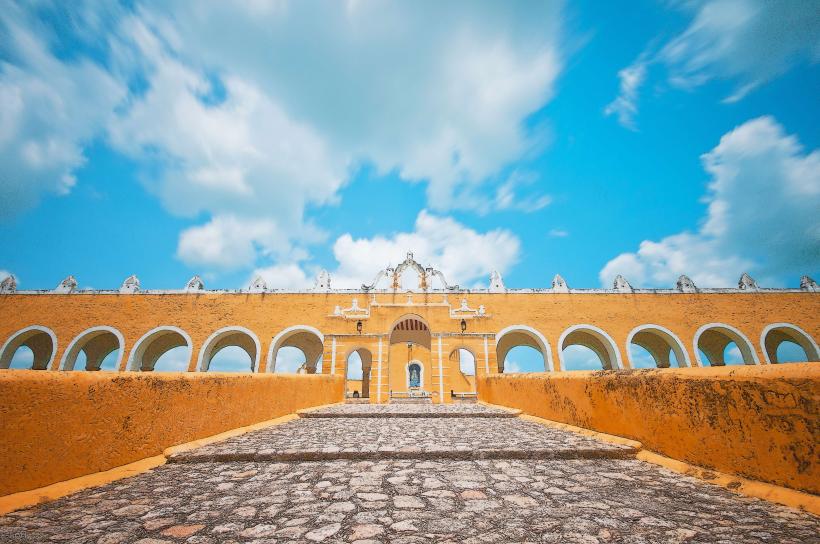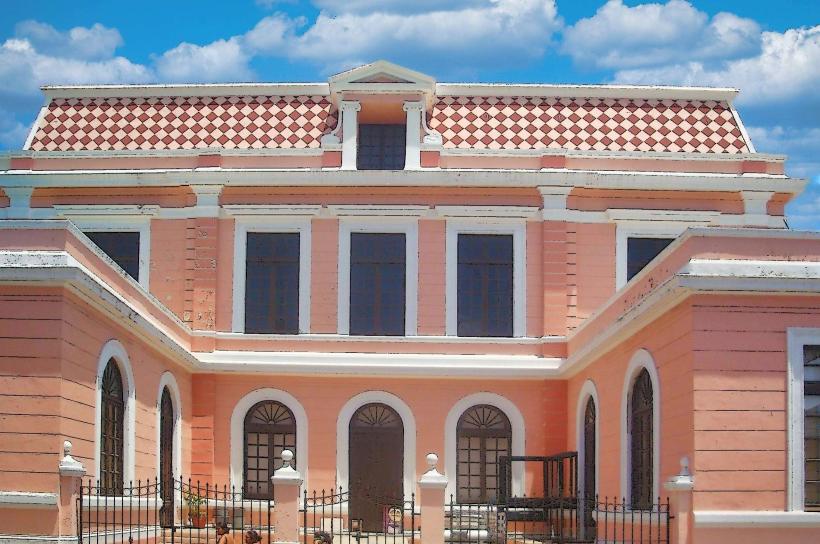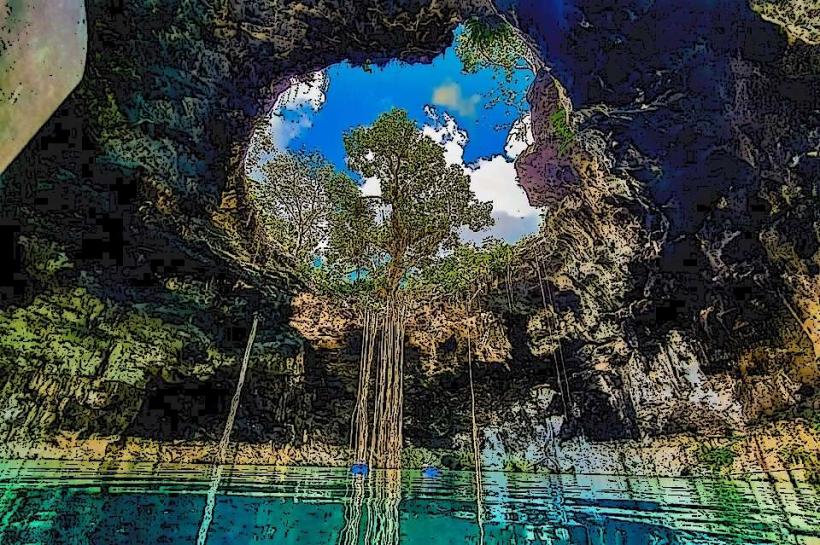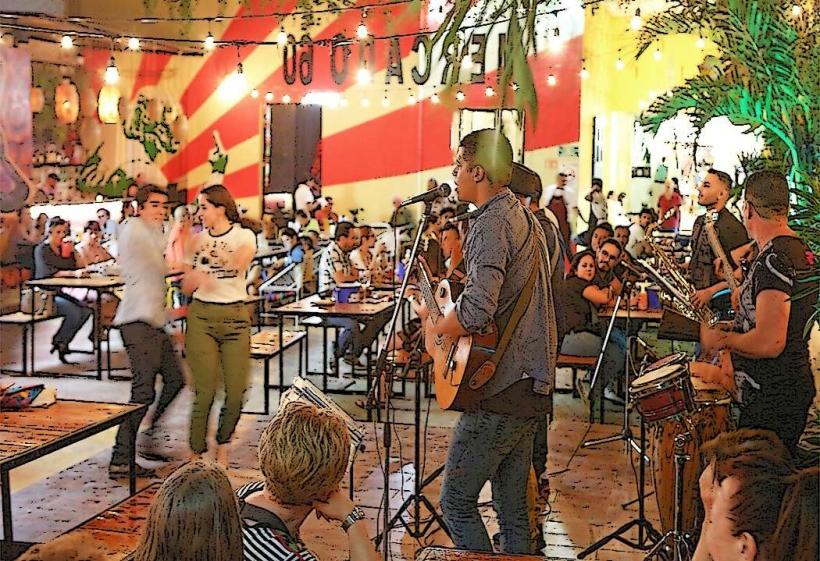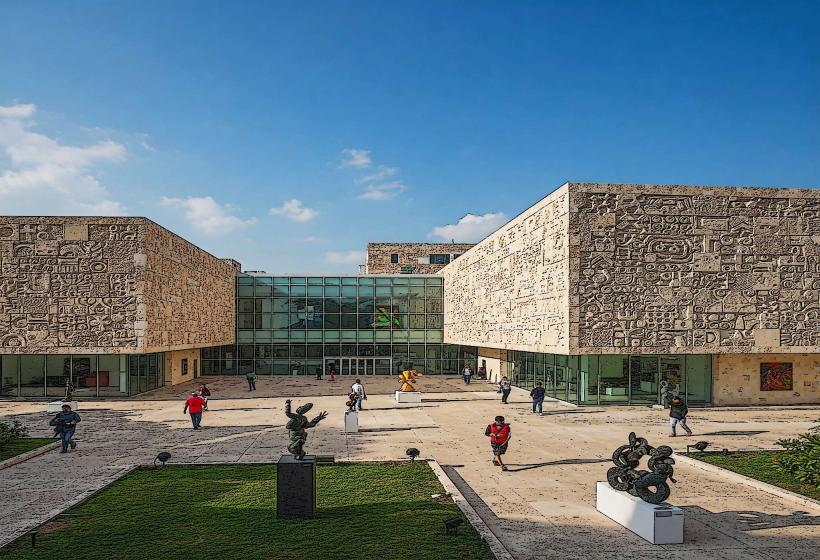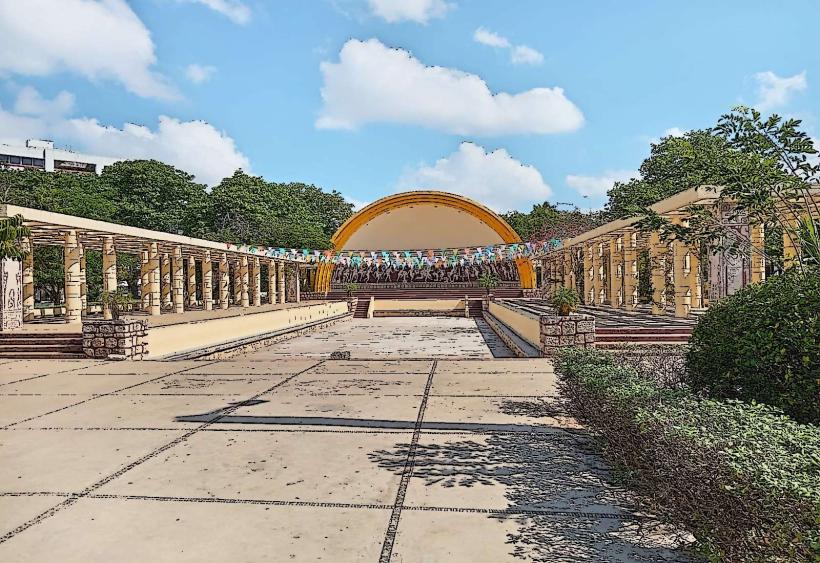Information
Landmark: Catedral de MéridaCity: Merida City
Country: Mexico
Continent: North America
Catedral de Mérida, Merida City, Mexico, North America
The Catedral de Mérida is a Roman Catholic cathedral located in the historic center of Mérida City, Mexico. It is one of the oldest cathedrals in mainland North America.
Visual Characteristics
Constructed primarily from limestone, the cathedral features a Renaissance architectural style. Its facade is characterized by two distinct bell towers of unequal height. The main body of the church is a single nave, with chapels flanking its sides. The interior is adorned with religious artwork and altarpieces, including the Cristo de las Ampollas.
Location & Access Logistics
The cathedral is situated in the Plaza Grande, the main square of Mérida City. It is directly accessible from Calle 60 and Calle 62. Parking is available in paid public lots surrounding the Plaza Grande, such as the "Estacionamiento La Paz" located approximately 200 meters southwest. Public transport routes frequently service the Plaza Grande area, with numerous bus stops along Calle 60.
Historical & Ecological Origin
Construction began in 1562 and was completed in 1598. The cathedral was built on the site of a Mayan temple, with some of its stones reportedly incorporated into the structure. The original purpose was to serve as the seat of the Roman Catholic Diocese of Yucatán.
Key Highlights & Activities
Visitors can explore the main nave and chapels. The Cristo de las Ampollas, a revered image, is a focal point. Photography is permitted within the cathedral. Mass services are held daily.
Infrastructure & Amenities
Restrooms are available within the cathedral complex. Limited shaded areas are present in the surrounding Plaza Grande. Cell phone signal (4G/5G) is generally strong in this central urban location. Food vendors and restaurants are abundant around the Plaza Grande.
Best Time to Visit
For interior photography, the morning hours (9:00 AM - 11:00 AM) offer softer light. The cathedral is accessible year-round. The surrounding Plaza Grande can be warm during midday; visiting in the early morning or late afternoon is recommended for comfort.
Facts & Legends
A notable historical oddity is the legend of the Cristo de las Ampollas (Christ of the Blisters). It is said that when the indigenous people attempted to burn the image, it remained unharmed, and the blisters that appeared on its body were a sign of divine protection. The cathedral is also known for its imposing organ, which is one of the largest in Mexico.
Nearby Landmarks
- Palacio de Gobierno (0.1km West)
- Casa de Montejo (0.2km North)
- Parque de Santa Lucía (0.7km East)
- Museo Fernando García Ponce-Macay (0.3km Northwest)
- Arco de la Independencia (0.8km South)

